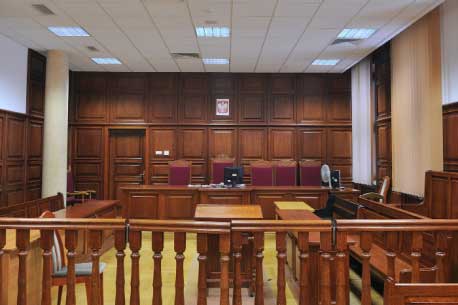Postponement of the execution of the sentence, as well as a break in its execution, are institutions which, after a conviction, allow for imprisonment. These institutions are fundamentally different. Admittedly, the court decides on the application of each of them, but in the event of adjournment it is the court of first instance and in the event of a break - a penitentiary court. In the case of deferral, enforcement of the sentence does not begin, which is an exception to the principle of immediate execution of enforcement proceedings (which results in placing the convicted person in the appropriate penitentiary institution).
The application of this institution is associated with the occurrence of some special circumstances for which the court may or must defer execution of the sentence. The Executive Penal Code stipulates that the postponement of execution may be optional and mandatory.
In any case, the court must postpone the execution of a sentence of imprisonment on the basis of the mental illness of the convicted person or another serious illness which he has suffered and which prevents the execution of this sentence. Serious condition should be considered a condition of the convict in which placing him in prison may be life-threatening or cause serious danger to his health. To recognize that this is the case, it is necessary to obtain an expert opinion. In this situation, the execution of the prison sentence is postponed until the obstacle ceases.
The court may postpone the execution of a prison sentence in two cases:
- if immediate execution of the sentence would have too severe consequences for the convict or his family.
The court may then postpone the penalty for up to one year. In relation to a convicted pregnant woman and a convicted person taking care of a child alone, the court may postpone the execution of the sentence for up to 3 years after the child's birth. Too heavy effects are considered, among others, to be the sole breadwinner, the need for urgent agricultural work or the inability to continue education.
- if the number of prisoners in prisons or pre-trial detention centers exceeds the overall capacity of these facilities on a national scale.
The court has the right to postpone the penalty for up to one year. It should be noted, however, that it is not possible to apply a deferral to:
- convicted of crimes involving violence or graves of using it;
- repeat offenders;
- persons who have made a steady source of income from committing a crime or have committed a crime by acting in an organized group or association aimed at committing a crime and against the perpetrator of a terrorist offense;
- convicted of offenses referred to in art. 197-203 of the Penal Code (e.g. rape, pedophilia, incest) committed in connection with sexual preference disorders.
Postponement may be granted several times, however its total period may not exceed the above periods. The postponement period runs from the date of the first order in this regard. It should be remembered that the regulations cited apply only to imprisonment. The postponement of the execution of the fine and the postponement of the execution of the penalty of restriction of liberty are set out in other provisions of the Executive Penal Code.
[Legal status as at March 2020]



